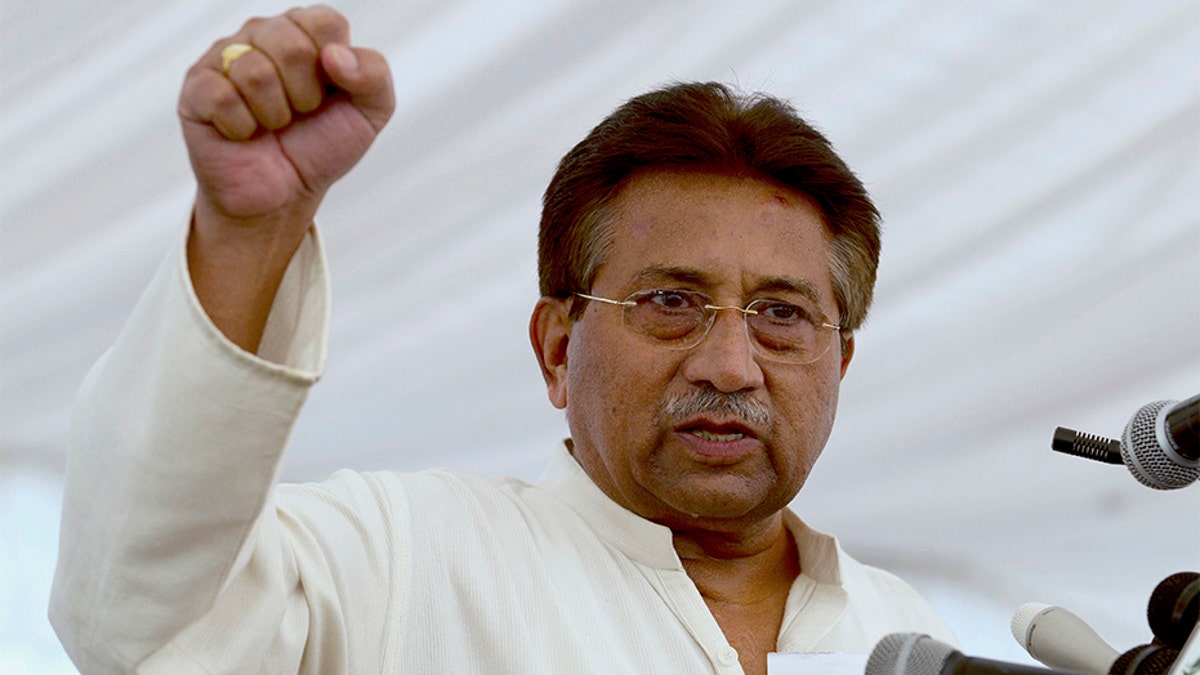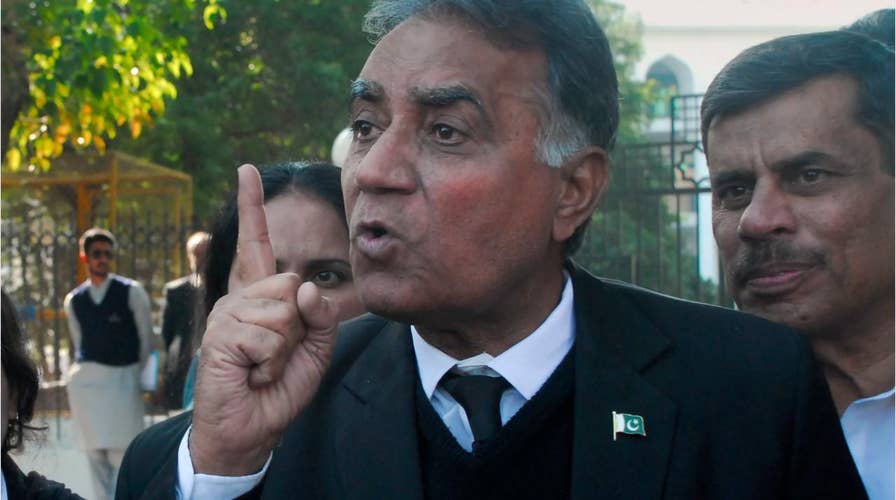Pervez Musharraf, former president of Pakistan, sentenced to death for treason
The former president of Pakistan, Pervez Musharraf, has been sentenced to death. Musharraf, who was charged in 2013, was found guilty of treason.
Pervez Musharraf, Pakistan’s former president who has been living outside the country, was sentenced to death in absentia Tuesday on charges of high treason stemming from his decision to suspend the constitution and detain judges in 2007.
Salman Nadeem, a government law officer, told Reuters that Musharraf was found guilty of Article 6 “for violation of the constitution of Pakistan.” The three-person court ruled in favor of the sentence 2-1.
“For the first time in the history of Pakistan... a military dictator has been punished by a court of law," Hamid Ali Khan, a senior Supreme Court lawyer, said following the verdict.
But Akhtar Shah, one of Musharraf's attorneys, said he would appeal.

In this 2013 file photo, Pakistan's former President and military ruler, Pervez Musharraf, addresses his party supporters at his house in Islamabad, Pakistan. (AP)
“Musharraf today sent me a message, saying he is ready to come to Pakistan but his doctors are not allowing him to travel," the lawyer told The Associated Press following the ruling. He added that Musharraf offered to give a statement to the court through a video link but the request was denied.
Musharraf has been living in Dubai, the United Arab Emirates, and is said to be very ill and unlikely to travel home to face the sentence. Pakistan and the UAE have no extradition treaty and Emirati authorities are unlikely to arrest Musharraf. If he were to return, however, Musharraf would have the right to challenge his conviction and sentence in court.
Musharraf took power in a 1999 coup but was forced to step down in 2008. The charges have been in place since 2013 and he was allowed to leave on bail in 2016 to seek medical treatment abroad.
In an infamous purge in 2007, Musharraf imposed a state of emergency and placed several key judges under house arrest in the capital, Islamabad, and elsewhere in Pakistan.
But the move to suspend the constitution backfired and led to widespread protests by the country's powerful legal community. Musharraf left the country soon after.
LONDON BRIDGE ATTACKER'S BODY REPORTEDLY FLOWN TO PAKISTAN FOR BURIAL
After the sentence was announced Tuesday, Pakistan's Information Minister Firdous Ashiq Awan told reporters that Prime Minister Imran Khan's government would “review in detail” the verdict before commenting on it. Khan, who enjoys good ties with the country's powerful military, is expected to return home from Geneva on Wednesday.
Musharraf was hospitalized again last week in Dubai but the state of his health or a specific reason for this hospitalization has not been announced.
In a video message he released two weeks ago, Musharraf said he was ready to record his statement about the treason case for the court but that he was unable to travel to Pakistan.
During the video, looking visibly unwell, Musharraf claimed the treason charges were baseless and said he served his country for 10 years.
“I have fought for my country,” he says in the video. “This is a case in which I have not been heard and I have been victimized."
CLICK HERE TO GET THE FOX NEWS APP
Mehrene Malik Adam, the secretary-general of Musharraf’s small opposition party All Pakistan Muslim League, also denounced the trial that led to the death sentence.
“Legal requirements were not met and our lawyers were not given the opportunity to present their case," she said.
Fox News' Greg Norman and the Associated Press contributed to this report.

